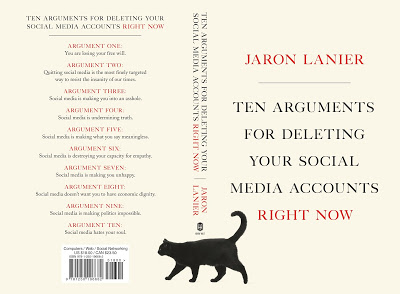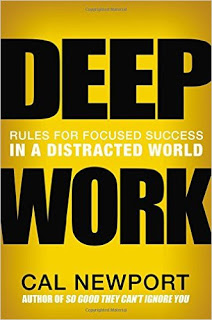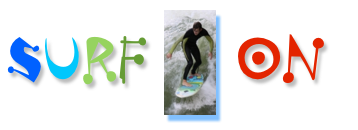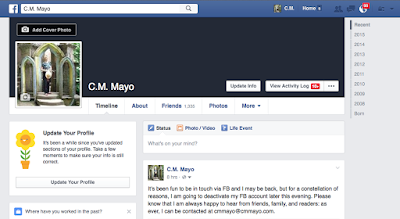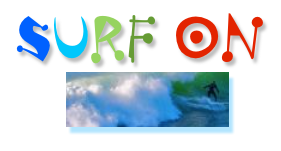
This blog posts on Mondays. Second Mondays of the month I devote to my writing workshop students and anyone else interested in creative writing. Welcome!
> For the archive of workshop posts click here.
Like many writers I nurture an oft-adjusted list of possible future writing projects (PFWP). I’ve been at this game for more years than I want to confess, so trust me when I say it’s surprisingly easy to get a sizzling-hot-slam-a-roni of an idea and then… have completely forgotten all about it anywhere from five minutes to five weeks later. But there they all are, captured in ink on my PFPW! (I keep mine in my Filofax. Other writers might prefer to keep theirs in a file on their computer or, perhaps, in a special notebook.)
Right now, February 2020, my PFWP list has four nonfiction books, three novels, a batch of stories, a couple of poems, a couple of translation projects, and an essay of creative nonfiction. Two of these possible future writing projects have been sitting on the list for over a decade. Oh, and just yesterday, I came up with a solidly good idea, if I do say so myself, for a scholarly paper about a cavalry officer’s adventures in the Guadalupe Mountains.
Will I ever get to them all? That is not the question.
My PFWP list is not so much a “to do” list as it is my very own rich and appealing menu. Whenever the time comes that I am ready to commit to a new writing project, I’m never left sitting there, spinning my wheels, wondering, ohmygosh, what can I write now? I simply whip out the PFWP and see which of those many projects feels right for me for a next-action.
All of them are appealing enough to me that were any one the only option I would gladly do it– or else I don’t add it to the list.
Meanwhile, one thing that helps keeps me going with my current writing project– the memoir of Far West Texas— is my NTDN list, that is, my list of the things Not To Do Now. These are things I feel pressured by others to do; or tempted against my better judgement to do; or expect / want to do at some point, but not now– “now” being the horizon for my current writing project.
TOP 5 ON MY NTDN LIST
(1) Download Whatsapp
Nope, I have never downloaded Whatsapp. Bless you, my many friends and relatives who have asked me for my Whatsapp, because I love you! I do want to be in touch, I do want to see your photos! But it’s either my book gets written + I answer email or I do Whatsapp + I answer email. I have only 24 hours in the day. May I be blunt? Would you really wish for me to not write my book?
(2) Get a TV
I gave away my TV an eon ago. I had a Netflix subscription once, but it so long ago I have forgotten when it was that I canceled it. Bless you all who can spend hours watching TV! But I don’t, I can’t, and that’s that!
(3) Participate on Social Media
FaceBook deactivated in 2015. LinkedIn minimal. Instagram zip. Twitter I’ve been on since the get-go, but for a long while now I only tweet the link to the once-a-month Q & A on this blog, and on very rare occasion something similar, as a courtesy to that writer and anyone else mentioned on my blog. I consider Twitter so toxic that when I log on I use a timer to keep the whole interaction under 3 minutes. Why so toxic? Let me count the ways… but that would be another blog post. Twitter is just evil.
> See also Jaron Lanier’s Ten Arguments for Deleting Your Social Media Accounts Right Now
(4) Pilates class
I recently gave up my weekly pilates, a wonderful class. I do think physical activity is important, but right now I don’t want to have to take time to get in my car and drive somewhere else and on a rigid schedule (um, the class doesn’t wait for me…). I’d prefer to take classes with a real person, but again, there are only 24 hours in the day, and to make time for writing I have to let some things go. I do take walks everyday, and weather permitting, I bike, and I also do yoga every day, both on my own, and with online yoga classes which, by their nature, commence, pause, and conclude in my own home at my own convenience.
(5) Teach a writing workshop
This is terribly tempting because I love teaching writing workshops. I am always charmed, challenged, and inspired by my students! And I believe my own writing is much better for having taught various workshops over so many years. But right now I need the time and creative energy for my book. Therefore, barring a possible mini-conference workshop next fall, I am not teaching again until (maybe) later this year. In the meantime, I console myself with writing a once-a-month workshop post for this blog.
#
My NTDN list is actually far longer, and it includes everything on my PFWP list, by definition. But you get the idea.
Of course, each writer’s PFWP and NTDN lists are going to be as unique as his or her fingerprints. My point is not that the items on my lists would be good for you or anyone else, but simply that, in my experience, too few writers trouble to make these lists in the first place—and then wonder why they feel at a loss about what to write, and then even when they do know what they want to write, they often find themselves spending their time and mental energies in ways that do not support their writing.
If you haven’t already made your PFWP list, simply muse: What writing projects sing (or whisper) to you as possibilities? Be sure to keep a notebook and pen with you at all times. Your best ideas just might come to you when you’re out and about. Or taking a shower. Or folding laundry.
And as for a NTDN list, what are some activities that might tempt you, or be warmly or even hotly encouraged by the people around you, but that, on reflection, you would consider a fatal drag on your time and mental energies for accomplishing your current writing project(s)? Or what are some things that you would be delighted to do, just not now?

A Slam-dunk (if Counterintuitive) Strategy to
Simultaneously Accelerate, Limber Up,
and Steady the Writing Process
It Can Be Done! This Writer’s Distraction Free Smartphone (DFS),
Plus an App Evaluation Flowchart to Tailor-Make Your Own
What the Muse Sent Me about the Tenth Muse,
Sor Juana Inés de la Cruz
Find out more about C.M. Mayo’s books, shorter works, podcasts, and more at www.cmmayo.com.


